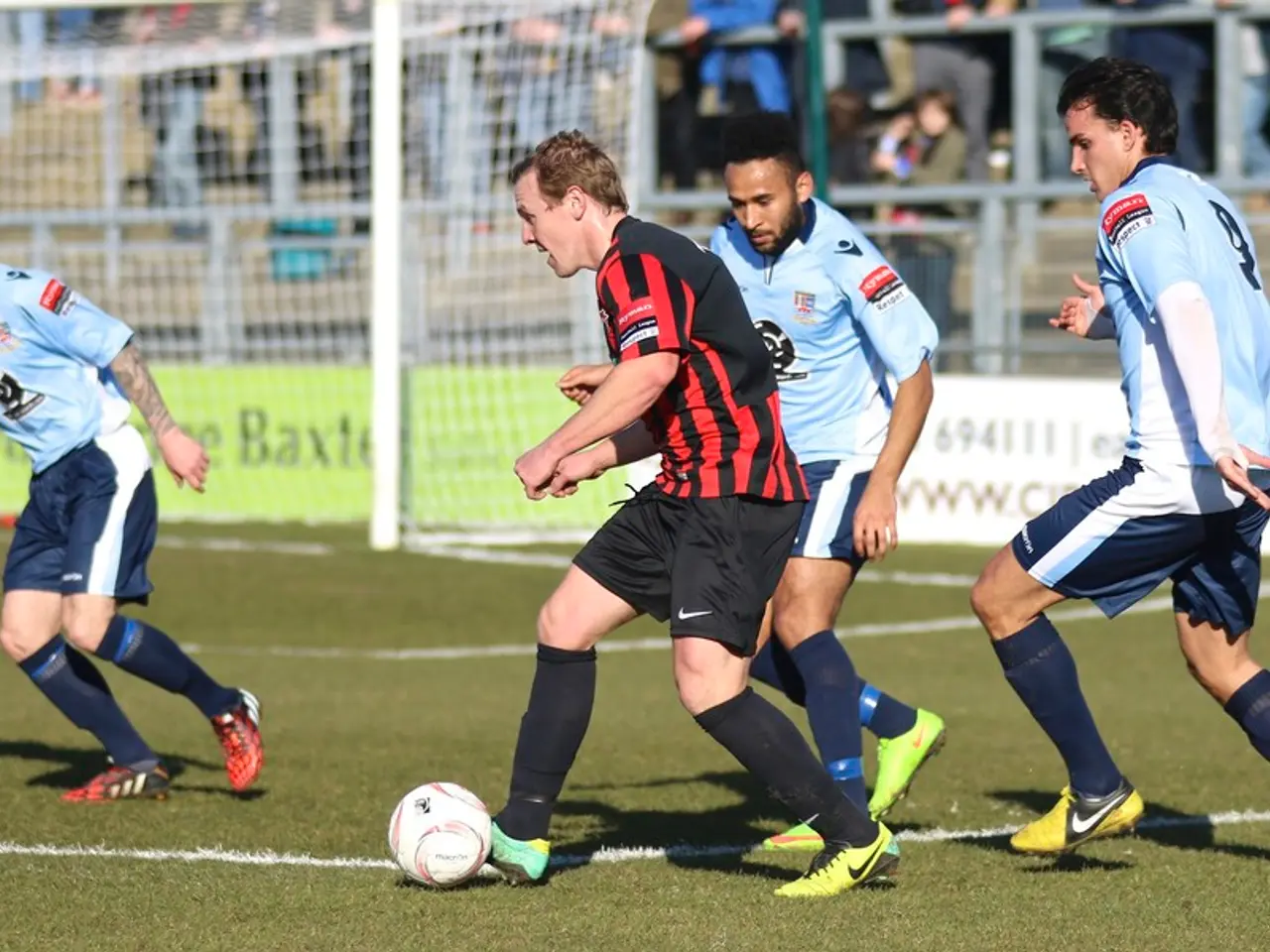Insufficient Performance by Tomorrow's Stars Interferes with the Game
The U21 leagues and youth development programs in Germany, Spain, and France play a pivotal role in shaping the careers of young footballers, each with its unique approach that impacts the style of player progression.
Germany: A Focus on Physicality and Professional Integration
Germany's U21 leagues and youth systems prioritize physicality, tactical discipline, and integration with professional senior teams. This is achieved through well-structured academy setups that ensure a relatively smooth transition to top-tier football. The German U21 team consistently performs well internationally, as evidenced by their top placement in the 2025 European U21 Championship Group B.
Spain: Cultivating Technical Skill and Creativity
Spain's youth development system places a heavy emphasis on technical skill, possession-based football, and tactical intelligence. Club academies such as La Masia (Barcelona) integrate younger players into first teams relatively early, encouraging creativity and producing world-class talents. Spain's U21 teams also perform competitively in European tournaments.
France: Balancing Physicality and Technical Skill
France's youth development combines physicality and technical skill, supported by a national system that includes elite academies like Clairefontaine. This approach ensures the production of players who succeed at both domestic and international levels. French programs emphasize athleticism, versatility, and mental strength alongside technical training.
A Comparative Overview
| Aspect | Germany | Spain | France | |--------------------------------|--------------------------------|--------------------------------|------------------------------| | Primary focus | Physicality, tactical discipline, professional integration | Technical ability, possession, early senior integration | Combination of physicality, technique, and mental fortitude | | Youth-to-senior transition | Close link via Bundesliga clubs and U21 leagues | Club academies integrate youth early into top teams | National elite academies identify and train talent nationally | | U21 international success | Consistently strong, top of group in 2025 U21 Euro qualifiers | Competitive, with strong tactical and technical command | Strong contenders with holistic player development | | Style of play influenced | Structured, efficient, disciplined | Technical, possession-oriented | Balanced athletic and technical approach |
Each of these countries has a distinct approach to youth development, which contributes to their continued success and the production of world-class football talent. The U21 leagues and programs act as essential stepping stones to senior football by providing competitive international experience and facilitating the transition into professional leagues.
Notable Mentions
- France has a program called "Discovering Young Talents" that accompanies children from the age of 13 on their way to professional sport and the French national teams.
- RB Leipzig is known for receiving young foreign players, with Dayot Upamecano, Christopher Nkunku, and Nordi Mukiele being examples.
- Jürgen Klopp advocates for a separate U21 league to extend training time, creating a new player market and a new coach market.
As the world of football continues to evolve, so too does the approach to youth development. Each country's unique system offers valuable insights into the moulding of future stars, ensuring a vibrant and competitive landscape for years to come.
Sports analysts often debate the strengths and weaknesses of European leagues' youth development programs, drawing particular attention to those in Germany, Spain, and France.
Germany's emphasis on physicality, tactical discipline, and professional integration prepares players well for the rigors of the Bundesliga and Champions League.
Meanwhile, Spain focuses on cultivating technical skill, creativity, and early senior integration, as demonstrated by the world-class talents produced at academies like La Masia.
France's approach is a balance of physicality, technical skill, athleticism, versatility, and mental strength, ensuring the production of players who excel at domestic and international levels.
Each of these countries' distinct approaches contributes to their success in nurturing future champions within European leagues.







